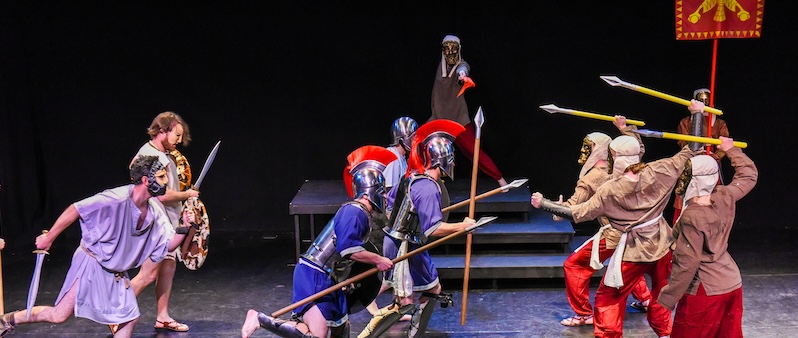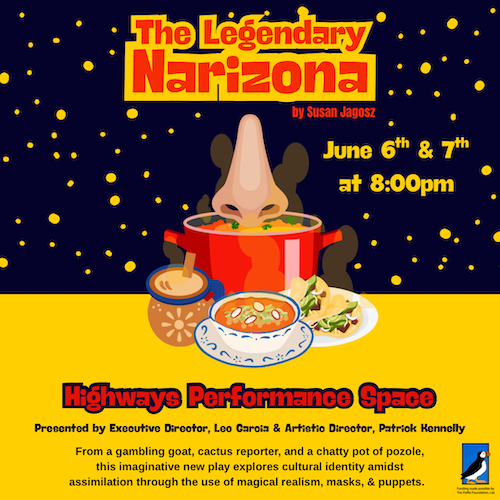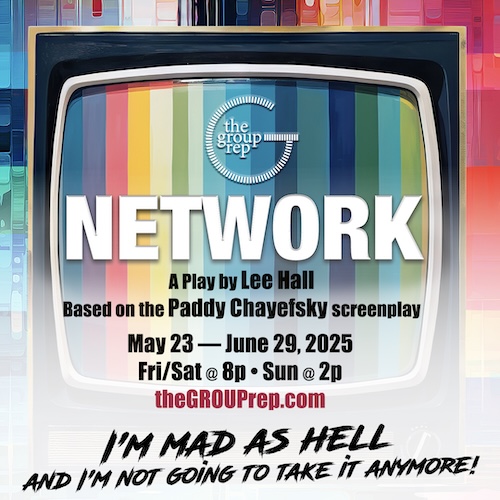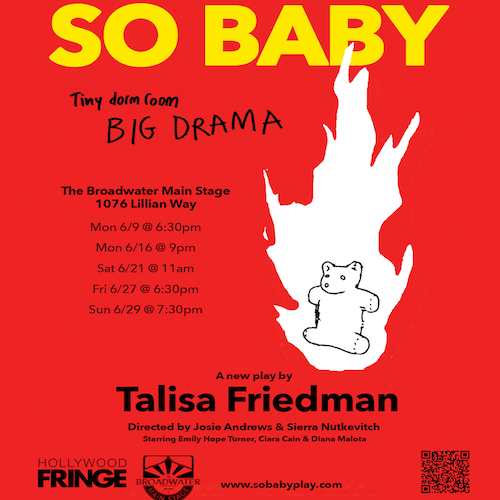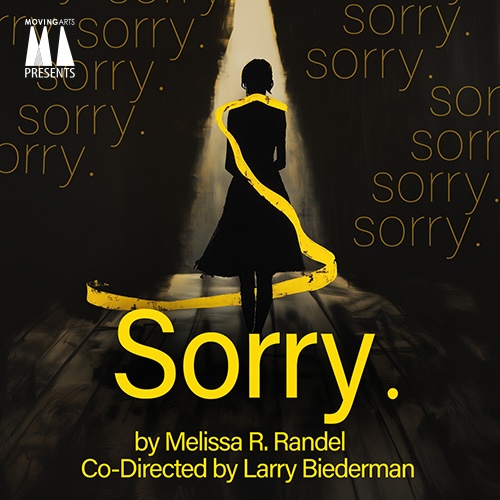

Reviewed by Madison Mellon
The Broadwater
Through May 11
Clocking in at five hours and 45 minutes, Hellas is nothing if not ambitious. Written and directed by Christopher William Johnson, the play draws from the writings of Herodotus, Aeschylus’s The Persians, and other classical sources. It endeavors to tell the sweeping story of the Greco-Persian Wars—from the rise of the Hellenic city-states and the development of Athenian democracy to the eventual defeat of the Persian Empire. Unfortunately, ambition alone does not justify the runtime, and Hellas ultimately struggles under the weight of its own scope and scale.
While the subject matter is undeniably rich, the production rarely offers fresh insight or a unique angle on the story being told. Iconic events such as the Battle of Marathon and the stand of the 300 Spartans are recreated with fidelity but often lean into familiar cliches. The Spartans are rendered as hyper-masculine, superhuman warriors; the Athenians as intellectual bureaucrats; and the Persians, while portrayed with a certain elegance and nobility, at times veer into orientalist tropes. The result is a cycle of scenes that soon begin to feel repetitive—civic debates, battles, and court intrigues blur together without a compelling point of view to anchor them. This leaves the portrayal of these civilizations feeling superficial, despite the time spent with them.
There are, however, moments that hint at what Hellas could be. Atossa (Dawn Alden), Xerxes’ mother, is a compelling character whose political maneuvering leads to some of the more interesting moments in the show. Artemisia (Jen Albert)—a formidable admiral and strategist—also offers glimpses of intrigue, but she is ultimately sidelined for much of the third act. An especially missed opportunity lies in the character of Aeschylus (Mathias Blake), who appears early on rehearsing a play before going off to war, and returns to write The Persians based on his experience. This could have offered a powerful framing device and through-line, yet Aeschylus fades into the background for much of the story, making his bookend scenes feel disconnected.
Between the voluminous text and the on-stage battles, the demands placed on the ensemble are high. As Themistocles, Colin A. Borden brings energy and a strong command of language. The aforementioned Dawn Alden also has gravitas and stage presence, as does Thomas Bigley, playing King Darius. The strain of the marathon runtime does become evident in the latter acts, with lines occasionally fumbled and energy levels wavering. The use of masks and a presentational performance style aligns with classical Greek theatre traditions, but it eventually becomes alienating. The audience is held at a distance from the characters, unable to read facial expressions or connect emotionally, and the choice, while thematically justifiable, begins to feel like a barrier rather than a bridge.
The production design and staging, while competently done, are hampered by the small space. The costumes (costuming by Cat Morrison) are bold and colorful and clearly differentiate between the various civilizations and characters, and they are as effective as they can be within the demands of costuming such a large cast. There is no credited set designer, and the set is sparse, leaving the staging and costumes to evoke the grand scale of the piece. The fight choreography (by Jen Albert) has many inventive moments. But the constraints of the venue eventually catch up with the storytelling—there are only so many ways to stage a battle in a 98-seat black box theatre, and they begin to blur together. Ultimately, there is a mismatch between the spectacle this story demands, and the limitations imposed upon this production.
In the end, Hellas is a bold experiment with admirable intentions and moments of potential, but it rarely justifies its breadth and marathon length. Without a sharper dramatic structure or a more distinct throughline, the production becomes a test of endurance rather than a rewarding theatrical journey.
The Broadwater, 1078 Lilian Way, Los Angeles. Fridays at 7:30pm Part I on 4/18 and 5/2; Part II on 4/25 and 5/9. Saturday and Sundays at 2pm offer the complete saga; https://schoolofnight.org/ Running Time: 5 hours and 45 minutes with three 15 minutes intermissions.


